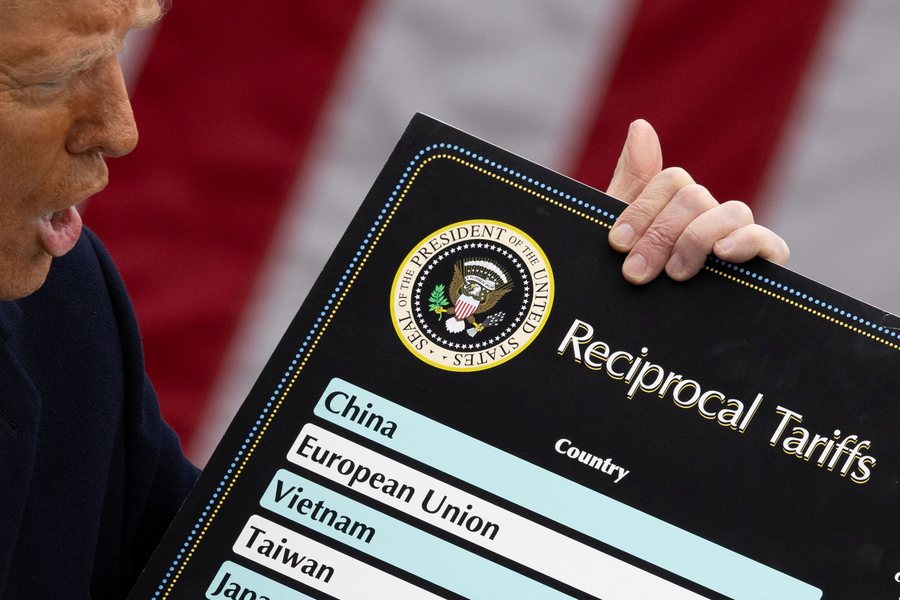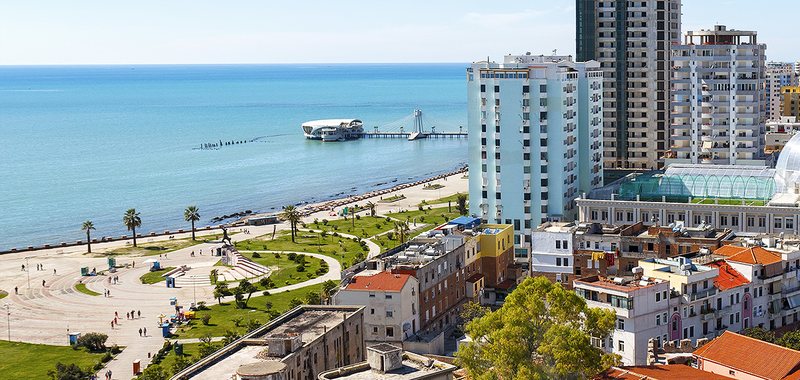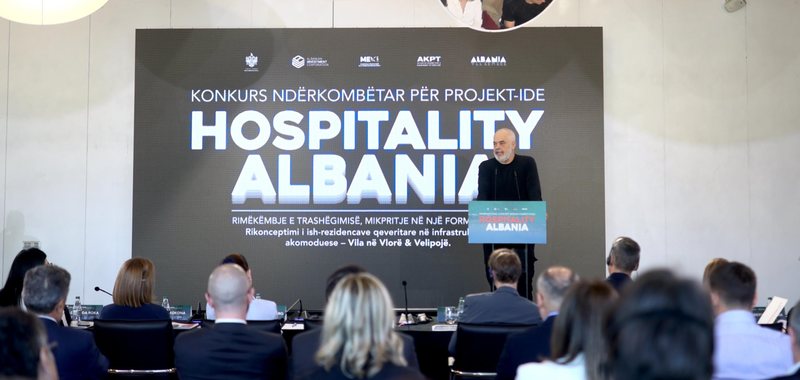EU, convinced to avoid US 500% tariffs - Senators' bill targets Russian economy and key partners

The European Commission is confident that the European Union will manage to avoid the economic blow from a new US Senate bill that foresees 500% tariffs on Russian energy importers.
The bill, co-sponsored by Lindsey Graham, a Republican from South Carolina, and Richard Blumenthal, a Democrat from Connecticut, provides for primary sanctions against Russia and secondary sanctions against its clients, in an effort to force the Kremlin to enter into serious negotiations for a lasting peace in Ukraine.
Graham has described it as "the toughest bill I've ever seen in my life in the Senate," while Blumenthal said sweeping restrictions would be "devastating" and put Russia's economy "on a trade island."
The project has garnered over 80 signatures in the 100-seat chamber, an impressive amount of bipartisan support aimed at securing the support of President Donald Trump.
The American leader has so far refused to put further pressure on Moscow, causing discontent among European allies, who have pledged to move forward with their own restrictions.
European Commission President Ursula von der Leyen met with Graham to discuss new ways to pressure Russia, including a new EU sanctions package she outlined last month, as well as the Senate bill.
"Pressure works, because the Kremlin doesn't understand anything else," von der Leyen said.
The statement after the meeting had a positive tone, but notably avoided any reference to the 500% tariffs and the potential chaos they could cause in the bloc's economy.
The bill proposed by Graham and Blumenthal includes a provision that would allow the US president to exempt specific countries, goods and services from the 500% tariff, based on "national security interests."
The two senators have said publicly that the primary target of secondary sanctions will be China and India, the largest importers of Russian oil, rather than Western allies. However, tariffs of 500% could cause market turmoil that affects all corners of the world.
France, Spain, Belgium, the Netherlands and Portugal buy Russian liquefied natural gas (LNG), while Italy, Greece, Hungary, Slovakia and Bulgaria export Russian pipeline gas. Hungary and Slovakia also buy Russian oil.
Furthermore, five countries - Bulgaria, the Czech Republic, Hungary, Slovakia and Finland - use Russian-built nuclear reactors that rely on specific fuels produced by Moscow.

Private pensions, 1,451 contributors added to the scheme - AFSA: Total fund assets “expand” by 493 million lek
More and more citizens are choosing to contribute to a private pension, in addition to the state one, in order to have a higher level of benefit in old......

What risks do businesses with tax debts face? - From confiscation of daily turnover to complete seizure of assets
Businesses are significantly neglecting the payment of tax obligations to the state budget, risking falling prey to harsh measures that could lead to the......

Temu's American users halve - Reason: elimination of the "de minimis" practice for shipments to the US
Global marketplace Temu's U.S. daily users fell 58% in May, according to data firm Sensor Tower. It's one of many struggles the e-commerce retailer is facing......

Durrës, with a new urban development plan - The Municipality begins the design phase for new investments
The Municipality of Durrës has announced the opening of the tender for the drafting of the master plan and preparation of implementation projects for a......

"Hospitality Albania" launches the competition for the selection of the best projects
"Hospitality Albania" is an investment project that aims to reuse and modernize government residences, which are currently depreciated structures with......

Instability in the foreign exchange market - How much are foreign currencies being exchanged today?
The US dollar has registered a slight increase this morning compared to the previous day, although it has continued to be volatile for some time now, being......

"The US dollar is expected to fall by 9%" - Morgan Stanley predicts the euro will strengthen against the US currency in 2026
The US dollar will fall to levels recorded during the Covid pandemic in mid-2026, hit by interest rate cuts and slowing growth, according to forecasts from......

Albania-Greece, partnership for a common European future - "Integration, economy and dialogue", at the center of Minister Hasani's official visit
The Minister for Europe and Foreign Affairs, Igli Hasani, paid an official visit to Athens, where he was received by the Minister of Foreign Affairs of......


















